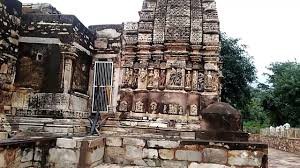Neelkanth Temple, situated in Alwar, Rajasthan, is a magnificent testament to India’s rich cultural and architectural heritage. Perched atop the lush green hills of the Aravalli Range, this temple is not just a place of worship but also a visual delight for visitors, offering panoramic views of the surrounding landscape. The temple is dedicated to […]
Alwar
Alwar, a city located in the northern Indian state of Rajasthan, is renowned for its rich cultural heritage and historical significance. The city has been ruled by various dynasties and empires, each of which has left a mark on its architecture and religious traditions. As a result, the city boasts of several magnificent temples that attract pilgrims and tourists alike.
One of the most popular temples in Alwar is the Neemrana Fort Temple, situated atop a hill overlooking the city. The temple is dedicated to Lord Shiva and features intricate carvings and stunning architecture. Another famous temple in the city is the Bala Qila Temple, located within the majestic Alwar Fort. This temple is dedicated to Lord Hanuman and is believed to have been built during the Mughal era.
Other notable temples in Alwar include the Karni Mata Temple, which is famous for its large population of rats, and the Narayani Mata Temple, which is located in the hills and offers stunning views of the surrounding landscape. The Sankat Mochan Temple, located on the banks of the Siliserh Lake, is another popular destination for pilgrims and tourists.
In addition to these ancient temples, Alwar is also home to several modern temples, including the Radha Krishna Temple and the Sai Baba Temple. These temples offer a unique blend of traditional and contemporary architecture and are popular among devotees from all walks of life.
The rich cultural heritage and architectural marvels of Alwar’s temples make them a must-visit for anyone interested in history and spirituality. With their intricate carvings, stunning architecture, and spiritual significance, these temples are sure to leave visitors in awe.

